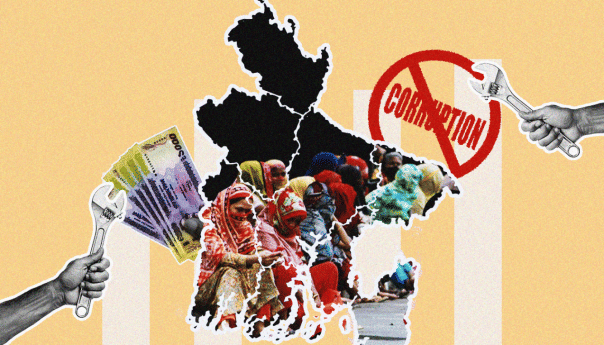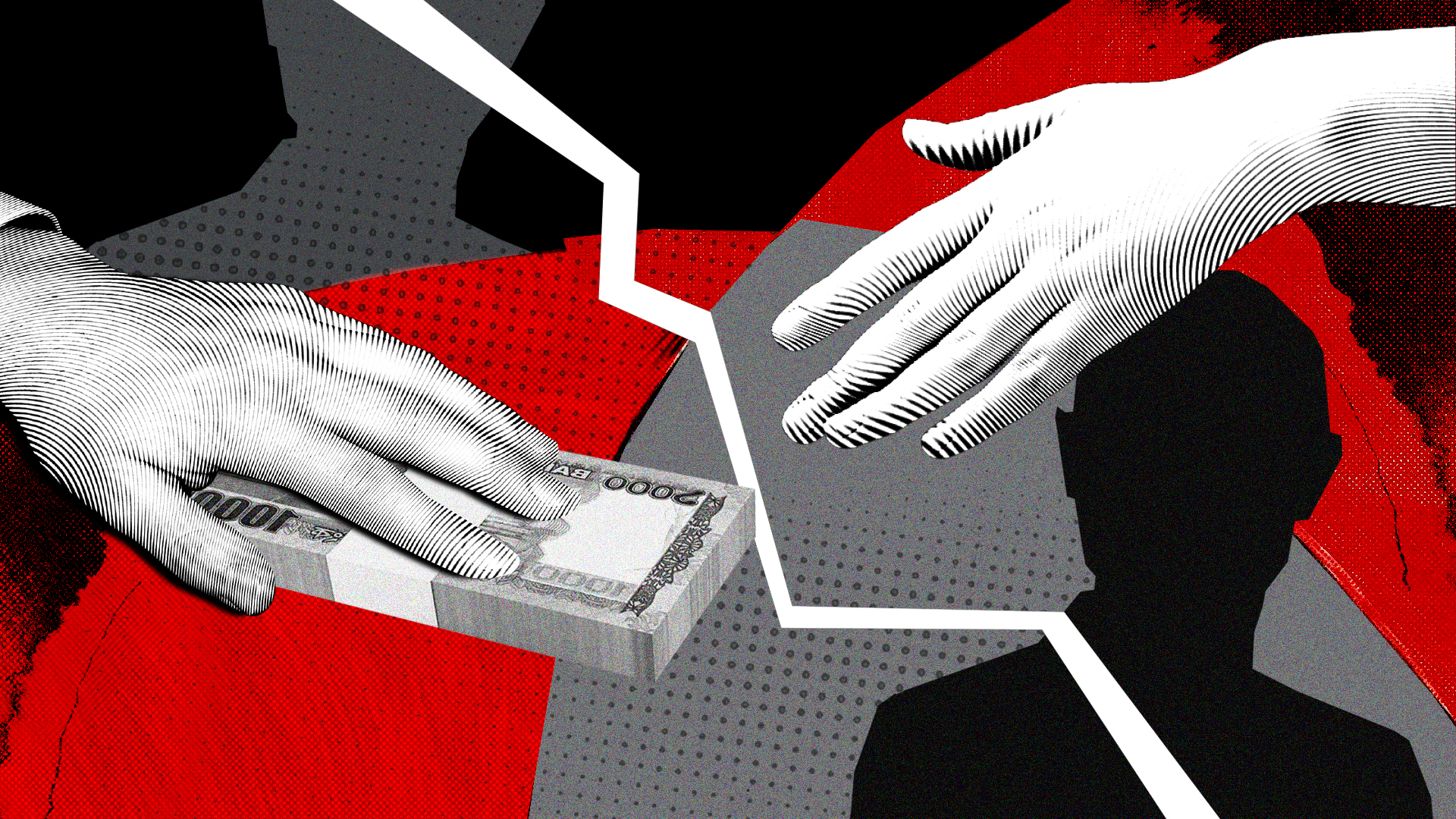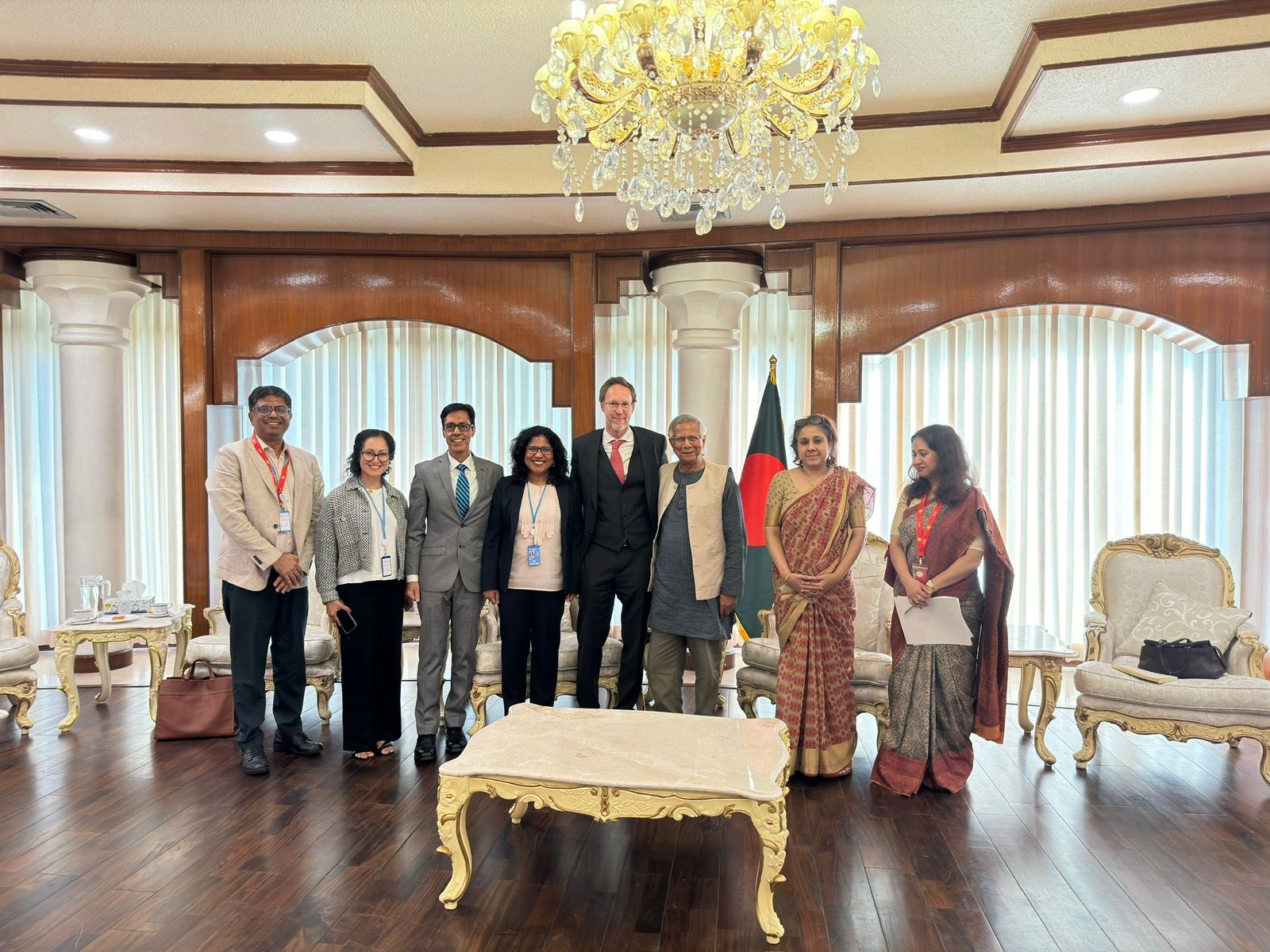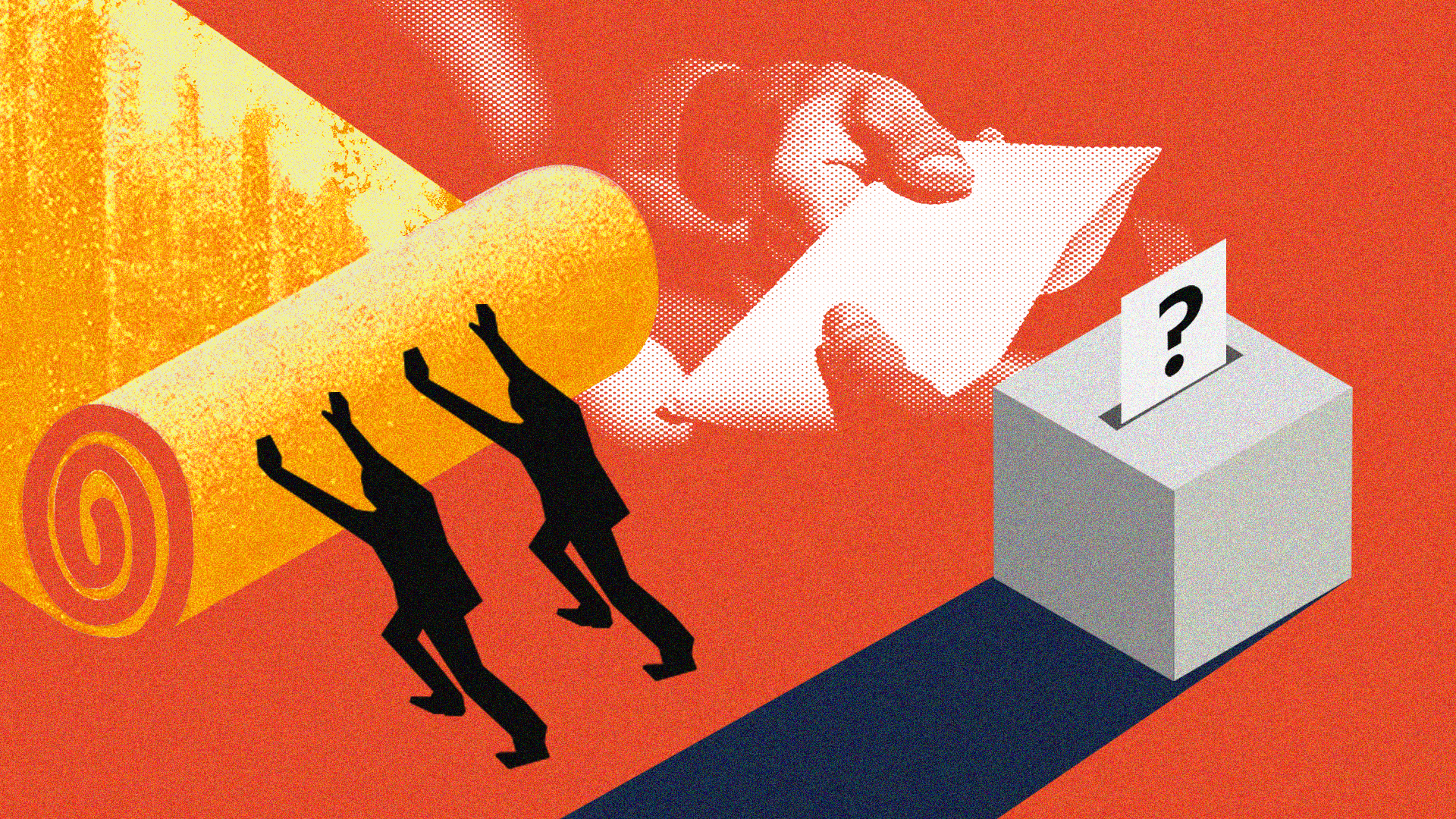Between a rock and a hard place

It is impossible to ignore the grim reality that the current interim government in Bangladesh, tasked with fixing the country's deeply entrenched dysfunctional governance—shaped by corrupt and extractive institutions that exclusively benefited the ousted regime through crony capitalism for 15 years—finds itself caught between a rock and a hard place. Central to this predicament is the insight provided in the seminal work, Why Nations Fail: The Origins of Power, Prosperity, and Poverty, by the 2024 Nobel laureates in Economics, Daron Acemoglu and James Robinson. Unsurprisingly, the authors argue that the successes and failures of nations across the world fundamentally depend on the kind of institutions they rely on, leading to either a virtuous cycle of prosperity or a vicious cycle of stagnation and decline.
According to Acemoglu and Robinson, extractive institutions prevent countries from embarking on a trajectory of sustainable economic growth. Nations such as Zimbabwe and Sierra Leone in Africa; Colombia and Argentina in South America; North Korea and Uzbekistan in Asia; and Egypt in the Middle East all suffer under such institutions, despite their diverse geographic locations, histories, languages, and cultures.
By definition, "extractive institutions" are political and economic structures designed to funnel resources and wealth from the majority of a population to a small elite. These institutions limit broad participation in economic activities, concentrate power in the hands of a few, and restrict innovation and economic progress. They are marked by high levels of corruption, patronage, and inequality, perpetuating a cycle of poverty and underdevelopment for the broader society. Conversely, "inclusive institutions" promote broad economic participation, protect individual rights, enforce the rule of law, and encourage competition and innovation. Such institutions ensure that the majority of the population has access to opportunities for economic and political engagement, fostering long-term economic growth and social progress by incentivising productivity and rewarding merit.
The challenge facing the interim government in Bangladesh is that the extractive institutions that sustained the previous repressive regime remain largely intact, even after the ousting of the dictatorial prime minister and her inner circle, posing a significant obstacle to meaningful reform. However, the saving grace is that this critical juncture offers a rare policy window through which the country can transition from extractive institutions to inclusive ones, a once-in-a-lifetime opportunity to initiate transformational change.
Without decisive action, the vicious cycle of kleptocracy and rent-seeking threatens to continue, stifling Bangladesh's progress towards a fairer and more transparent system of governance. The interim government cannot afford to overstay its welcome without seriously tarnishing the great opportunity for a paradigmatic change afforded by the July 2024 uprising.
The phrase "between a rock and a hard place" is germane to policymaking in these desperate straits for the interim government for two specific reasons. One, there is immense pressure to swiftly address the entrenched corruption and dysfunctional governance, left behind by the ousted regime, which requires dismantling the crony capitalist structures that have allowed politically connected elites to exploit public resources with impunity. And two, the government faces constraints in terms of time, resources, and political capital. Any aggressive reform efforts risk alienating powerful vested interests, whose resistance could destabilise the fragile interim period in the run-up to a free and fair election when the political government takes over. Furthermore, the "rock" represents the immediate need to gain public trust by initiating reforms that undo years of systemic corruption, while the "hard place" symbolises the difficult task of navigating institutional resistance and the deeply embedded networks of cronyism that could undermine these efforts. Policymaking in such a context requires a delicate balance—ensuring meaningful progress while avoiding unintended consequences that could deepen the crisis.
It should be borne in mind that the vicious cycle of kleptocracy, overseen by what was historically the most autocratic and repressive government in Bangladesh, was not only fueled by unchecked crony capitalism and entrenched institutionalised corruption but also by systematic rent-seeking behavior—a form of economic inefficiency described by David Ricardo. Under the previous regime, politically connected elites and businesses leveraged their relationships with the state to extract unearned financial benefits without contributing to genuine economic productivity.
In the banking sector, rent-seeking behavior became endemic. Banks, especially state-owned institutions like Sonali Bank and BASIC Bank, became key vehicles for funneling public resources into private hands. Politically connected businesses were granted preferential access to loans with a lack of due diligence, securing financial advantages not because of their productivity or innovation, but due to their proximity to power. Once these loans were defaulted on, rather than penalising the rent-seekers, the government allowed the burden to fall on taxpayers, deepening inequality while preserving the privileges of the elite.
Massive capital flight compounded these issues. Politically connected elites moved vast sums of money overseas, draining domestic resources that could have been used for development. To compensate, the government resorted to printing money, leading to inflation. Under the guise of "development," this practice created short-term liquidity but fueled inflation, further eroding the purchasing power of ordinary citizens while the elite, with wealth safely offshore, remained unaffected. This imbalance worsened economic inequality and weakened democratic governance, as development was pursued at the expense of transparency and accountability.
The judiciary's compromised state also facilitated rent-seeking. Judges who were appointed based on their political loyalty allowed those who benefited from rent-seeking practices to escape justice. In cases where rent-seekers were charged with corruption or fraud, legal loopholes, and politically motivated judicial decisions often protected them from meaningful consequences. This contributed to an environment where the rule of law was perverted to maintain the economic privileges of the elite, further entrenching the rent-seeking system.
The electoral process was designed to further institutionalise rent-seeking behaviour. Political elites manipulated elections, ensuring that those who gained office were individuals or parties willing to maintain the status quo of crony capitalism. Access to government contracts, natural resources, and monopoly privileges were all subject to this rent-seeking dynamic, where political loyalty was exchanged for exclusive rights and protection from competition.
The perpetuation of rent-seeking behavior resulted in severe economic stagnation for the majority of the population. While the politically connected elite enjoyed monopolistic privileges, the broader economy suffered from reduced competition, inefficiencies, and a lack of innovation.
Without decisive action, the vicious cycle of kleptocracy and rent-seeking threatens to continue, stifling Bangladesh's progress towards a fairer and more transparent system of governance. The interim government cannot afford to overstay its welcome without seriously tarnishing the great opportunity for a paradigmatic change afforded by the July 2024 uprising. In this historic movement, the students and the (extra)ordinary people of the country have demonstrated that no challenge is too great for them to confront. Their sacrifices and commitment have set a powerful precedent for the potential of transformative governance in Bangladesh.
However, one of the most significant obstacles to meaningful reform continues to be the entrenched "iron triangle" comprising corrupt politicians, business elites, and elements of the bureaucracy, which have historically controlled the flow of power and regulated resources in the country. This unholy alliance, which thrives on cronyism and patronage, has long resisted any attempts at structural change, reinforcing a cycle of stagnation and inequality. For the interim government, navigating this deeply embedded network of vested interests will be crucial. Without breaking the stranglehold of this iron triangle, the path to inclusive institutions and genuine democratic governance will remain blocked, no matter how strong the public's demand for change.
Dr Faridul Alam teaches at the City University of New York.
Views expressed in this article are the author's own.
Follow The Daily Star Opinion on Facebook for the latest opinions, commentaries and analyses by experts and professionals. To contribute your article or letter to The Daily Star Opinion, see our guidelines for submission.




 For all latest news, follow The Daily Star's Google News channel.
For all latest news, follow The Daily Star's Google News channel. 



Comments